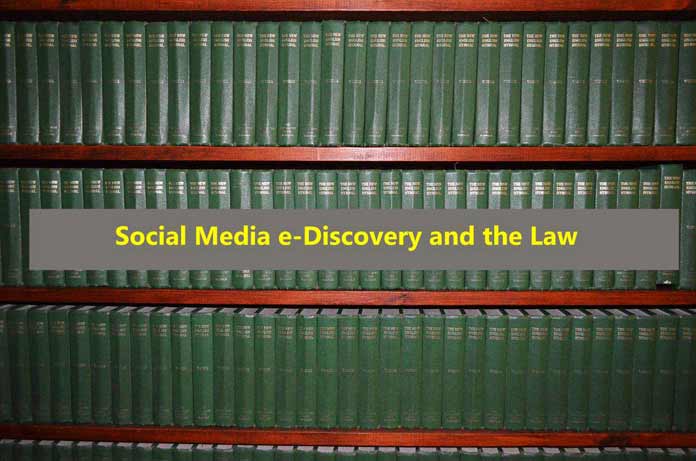

Thirty years ago as the Internet was making inroads to research, the U.S. Congress enacted the Stored Communications Act (SCA). The act broadened Fourth Amendment protection against unreasonable search and seizures to electronically stored information (ESI). In today's age of social media and email that allows for instant communication and continual sharing of all kinds of details, ESI is a regular target of discovery throughout the litigation process – including cross-border cases. The professional translation of these is a critical part of processing the documents that come to light during these activities. In 2013, the global e-discovery market was valued at $5.5 billion incorporating both services and software. In a next five years it's predicted to grow by $21 billion, mainly due to the mounting growth in the volume of ESI.
e-Discovery and social media
Currently, anyone involved in a lawsuit can have social media posts (Facebook, Twitter, Sina Weibo, LinkedIn, etc.) included in e-discovery if thought to be relevant to the case. There are numerous examples of posts and tweets being used in cases as evidence. This is especially true for cases involving personal injury claims, employment, and theft of IP.
Further value is provided through metadata – the date, time stamps, and geolocation information that can be influential in making or breaking a case. Regardless of password protections, legal staff can capture and index information from social media accounts worldwide. Access to restricted accounts is obtained through formal requests for passwords or by receiving information directly from account holders as part of the discovery process.
How does ESI affect businesses?
An online presence is good business sense. A recent study estimated 65% of Fortune 100 companies have active Twitter accounts and 54% have facebook pages; a further one in three have blogs. Companies are also translating content into multiple languages for external markets, and even these can be sequestered and require legal translation if a lawsuit were to be initiated.
While the prevalence of social media and the proliferation of web content was not nearly as extensive when the Federal Rules of Civil Procedure were amended in 2006 to include ESI, the wording was deliberately broad enough to cover all current computer based information and future developments. Companies today have a duty to preserve relevant or potentially relevant online content when legal action is imminent or underway.
The growing trend for court sanctions against lawyers and corporate clients who do not comply with e-discovery rules or tamper with content serves to further enforce the amendment.
How does this impact an individual?
It is imperative to understand that the content you post on the internet can and will be used in court if relevant to a case. Examples abound of personal injury claims being thrown out due to pictures or posts of the plaintiff showing their claims to be false.
Manipulating potentially damaging content after legal action has begun or once action is likely is forbidden by law. Deleting posts or closing accounts can be seen as a destruction of evidence, which is a serious offense in both civil and criminal cases.
The best tactics are to review your privacy settings where applicable and keep social media posts, emails, IM and tweets free of content that could be inferred as incriminating. If involved in legal proceedings, it is wise to curtail all social media and electronic communications about it.
International legal proceedings and social media
International litigation is fraught with challenges and e-discovery of all ESI is no different. The casual language and informal use of social media posts can make them more difficult to resolve via machine translation, which is often used for cataloguing foreign language content. In this case, professional foreign language document reviewers provide a better alternative.
The future for ESI
With the number of tweets, posts, blogs, and content available increasing daily, e-discovery in the realm of social media is a fertile area for both defence and prosecution lawyers looking to support or debunk a legal claim. You will do well to remember that each and every post, picture and tweet is timestamped, stored and may come back to haunt you. Be aware and protect yourself and your company by carefully considering what you publish online.
The author is the content manager at Morningside Translations. Views are personal.





